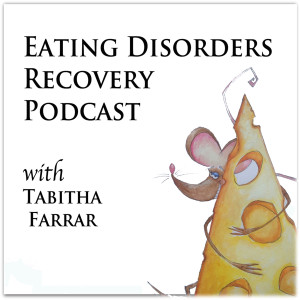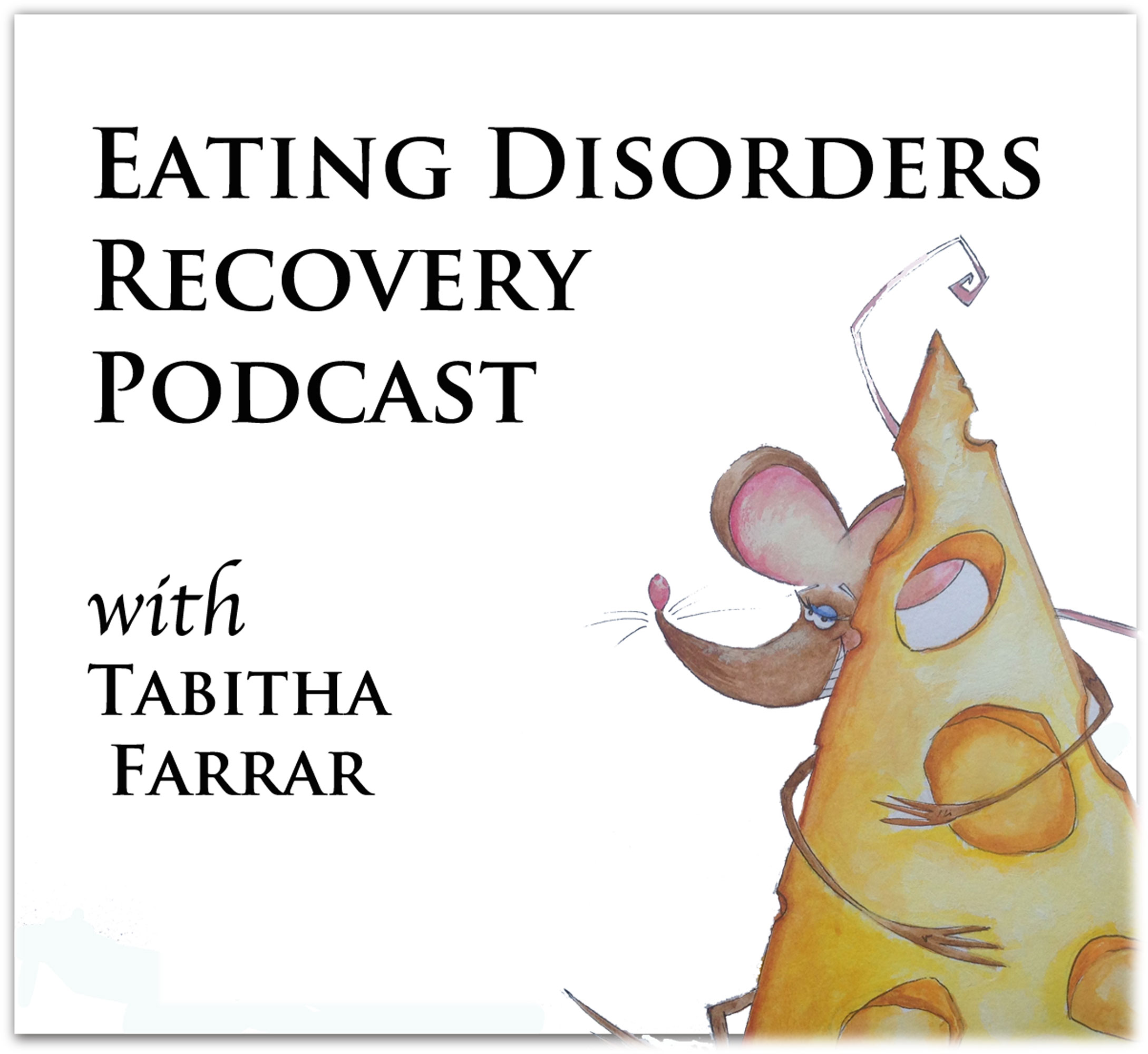
Episodes

Sunday Aug 07, 2016
How Family-Based Therapy Helped this Adult Recover from Anorexia
Sunday Aug 07, 2016
Sunday Aug 07, 2016
Last week I recorded a podcast with Dr. Lauren Muhlheim on the subject of adults with eating disorders. We touch on Family -Based Therapy there. You can listen to the podcast here, and in this post I will be referencing it.
PSA: This episode contains a swear word! Listen at your own risk 
About halfway through the conversation we get to talking about Family-Based Therapy (FBT) and the role that this evidence-based form of treatment that is usually used with children has in treating adult sufferers of eating disorders. Lauren asked me about my own story about using FBT to recover, and I tell a little, but I wanted to elaborate on that here.
Before I say anything more, I need to make it clear that treating ones own self for a serious mental illness is not optimal. I was desperate and I had no other resources. The whole point of advocacy in the eating disorders world is to push for resources to be available for people with eating disorders so they don’t have to self treat. That said, the principles that I applied to my own recovery can help you even if you are receiving professional treatment elsewhere — at least that my opinion. Remember, I am not a professional, I am just someone who worked out on my own how to treat my own Anorexia.
 So here’s my story:
So here’s my story:
I’d been suffering Anorexia for almost ten years, but I had only just began to understand that I had an eating disorder. Anorexia is particularly nefarious in they way that it disguises itself as the sufferers own thoughts and will. The nature of the disease is to not allow the sufferer to know there is a problem, but that’s another story in itself.
So, at this point I understand I have an ED, and I am starting to look for help, and all I can find are psychoanalytical approaches that tell me I must have been abused as a child, or I must absolutely hate myself, or for whatever underlying and hidden reason I am actually doing this to myself in order to gain control on my life of whatever. Bull Shit.
I knew even then that I wasn’t doing anything to myself, and I had begun to mistrust the thoughts in my head telling me not to eat and to exercise more. I had also begun to distrust the fight-or-flight response I had been having towards food for so many years. Long story short, I knew that something was up with my brain, and that whatever it was was not my doing — consciously or subconsciously.
So I start Googling eating disorders. And I come across this FEAST website that is a resource for parents of children with EDs. On that website is a forum, and I create a username and start reading. Fuck. I mean. Fuck. The stuff on that site. You’ve got parents who are terrified and watching their own children starve to death. You’ve got parents who have lost children to ED. You have parents who have successfully used Family-Based Therapy to treat a child with an ED, and you have everything in between. The anonymous nature of the forum means that this is a place where parents don’t need to hold back. They can openly grieve, rage, and unleash their frustration at their child’s illness. It’s raw.
I read a lot. Initially when I read about FBT and the process of practically force feeding children who are at risk of starving to death my own eating disorder had a fit. It told me that was cruel. But a part of me knew it wasn’t. A part of me knew it was the only thing that was going to help these children in the long run. As I continued to read about the horrific mealtime tantrums that these parents were dealing with six times a day every day I could see both sides: I was the child, but I was also the adult wanting the child to get better.
Those days reading FEAST taught me the following:
-
I understood that a parent could love their child but simultaneously hate their child’s eating disorder. This planted the seed for me that the two things were separate.
Much of the parent-to-parent support for parents new to Family-Based Therapy was teaching that parent that the tantrums that were directed at them every mealtime was not thier child — the tantrums were the disease. In order to not allow those tantrums to rip them apart and make them think that their own child hated them, it was crucial that they understood it was the disease talking and not the child.
TL;DR: It is okay to hate the eating disorder. The ED is not your child. You can hate the ED and still love your child.
-
You can hate your eating disorder and still love yourself.
Huge. This single realisation was the biggest turning point for me. As I read the hate-rage towards EDs that the parents on this FEAST forum had I absorbed it. I recognised all those ED behaviours in my own self and I was able to HATE them. Because the forum had taught me that my ED was not me, I as at full license to hate it.
I cannot stress this enough: I had to allow myself to hate my eating disorder in order to find the energy and motivation to get rid of it.
-
Learning about how Family-Based Therapy is used to treat children I was able to take the framework and apply it to my own self.
– Life stops until you eat. I would make myself sit at the table and tell myself you are not leaving until you have eaten it all. Even if it takes hours. No matter what else you had planned to do today, you don’t get to do any of it until you have eaten this meal.
Was it easy? Fuck no.
Many a time I slammed my chair back and left that table with food still on my plate, but I only got a couple of feet out of the kitchen before the “FBT voice” said: If you leave that food Anorexia has won. I hate Anorexia right, so that thought of letting it win would send me straight back to the table to eat the rest.
-
Food is medicine.
FEAST drummed this into me. I think that it’s tattooed onto some part of my brain somewhere. I still think it every day for good measure. I made that my moto. I made it my mantra. I repeated it over and over to drown out the ED voice telling me to obsess over calories or exercise.
After some time, I turned that into “Fat is Medicine” in an attempt to help myself redefine my more feared nutrient in my head — and that is what lead me to the book that I wrote: Love Fat.
Not ideal. Sometimes I wonder how on earth I did that. How the fuck did I fight my own mental disorder?
But I did. Treatment from an ED professional who knows the score is optimal for recovery, as nobody should have to do it they way that I did. But my story can be used for adults who want to continue their own treatment once the initial help has been given. Know that your ED is not you. Find a healthy hate for your ED and a passion to get rid of it. Know that every single mouthful of food is a win for you. Equally know that every plate that you walk away from is a win for your ED. Be brutal with yourself if you have to do that in order not to let your ED win. Ever.
Your ED is not you.
Food is medicine.
Please make sure that you subscribe to The Eating Disorder Recovery podcast in iTunes to make sure that you never miss an episode.

No comments yet. Be the first to say something!